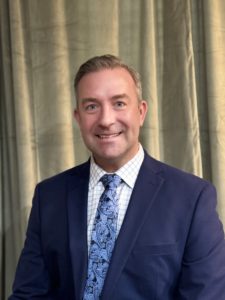 Microsoft and the City of Miami Help Seniors Get Connected
Microsoft and the City of Miami Help Seniors Get Connected
New eSeniors program enriches seniors’ lives with computer training at no charge and PCs customized for seniors.
  MIAMI,(RUSHPRNEWS) November 2, 2007 — For Concha Watson, 84, life was becoming increasingly narrow and lonely. A native of Colombia, Watson worked as a reporter at El Tiempo, the largest daily newspaper in Bogota, before marrying her American husband and moving to the United States, eventually settling in Miami.
Now a widow and retired, Watson found herself feeling isolated. Telephone calls to friends and family members in Colombia, Australia and other parts of the world were expensive, and a slight hearing problem sometimes made conversation difficult. Even within her own neighborhood, she found it increasingly difficult to connect with friends and neighbors. Her younger friends were busy with their jobs and families, and many of her older friends stayed home most of the time.
Today, Watson is learning new skills, has a vibrant social life, and communicates easily with friends and relatives all over the world—from Paris to Stockholm to Sydney.
What is making the difference for Watson and many other Miami seniors is eSeniors, a public-private partnership between Microsoft and the City of Miami. eSeniors, which is made possible in part through Microsoft’s Unlimited Potential effort, provides computer training at no charge and customized technology packages to Miami seniors at learning hubs located in neighborhood senior centers throughout the city.
“eSeniors aims to provide Miami seniors with technology tools and training that can empower them to improve their quality of life, simplify many everyday tasks, access community and government services more easily, and participate fully in our increasingly digital society,†says Miami Mayor Manny Diaz.
Asked what the eSeniors program has done for her, Watson, the writer, gives a poetic reply: “It has cut the cords that were threatening to tie me to loneliness.â€
Making Technology Accessible and Affordable for Seniors
eSeniors is part of Elevate Miami, a broad anti-poverty and digital inclusion initiative aimed at enabling all Miamians to participate in the digital lifestyle and compete in the digital economy. Through Elevate Miami—which received the prestigious City Livability Award from the U.S. Conference of Mayors because of its fresh and comprehensive approach to computer literacy and digital inclusion—the City of Miami provides training and computer access to Miami residents at no charge, using recycled computers.
The partnership with the City of Miami is the latest example of Microsoft’s commitment to help individuals, communities and governments achieve their goals through relevant and accessible technologies. Through Unlimited Potential, Microsoft is enabling new avenues of social and economic opportunity for people around the world by transforming education, fostering local innovation, and enabling jobs and opportunities to help create a continuous cycle of sustained social and economic growth. In addition, Microsoft today awarded the Miami Dade College Foundation more than US$600,000 in cash and software to be used, in part, to support Elevate Miami with its digital literacy and workforce training campaign for eSeniors.
Working with the eSeniors initiative in Miami, Microsoft and HP created SeniorPC packages, which are tailored to the needs and interests of seniors. People can choose either a desktop or notebook HP computer running Windows Vista and user-friendly software specifically geared to senior living. The SeniorPC packages also come with an HP color printer and software designed to help seniors manage their prescriptions, finances and household tasks as well as puzzles and games to sharpen their memory. Seniors can also choose a larger keyboard or trackball mouse for easier typing and mouse pointing. A Spanish-language PC is also available. In addition, any Miami senior who completes the city’s training program will receive a voucher to help offset the cost of purchasing a home computer.
“As personal computers and the Internet become increasingly important in our society, many seniors are being left out—not because of too little interest, but because of too little access and too few opportunities to learn the necessary skills,†says Rob Sinclair, director of the Accessibility Business Unit at Microsoft. “Miami is providing a model for other cities to follow, by making it easy for seniors to get the tools and training they need to gain full membership in today’s digital lifestyle.â€
Seniors Embracing the Digital Lifestyle
Nestor and Nery Olivier get up every day at 6 a.m. to make sure they catch the 7 a.m. bus for their 90-minute journey to the senior center at the Gesù Catholic Church, where they are learning about computers, networks, and digital communications. For the Oliviers, Cuban immigrants who are both in their early 80s, their work at the Gesù senior center is part of their passion for learning and their commitment to remain active and engaged during retirement.
“The Elevate Miami program offered at the Gesù Church has provided us with an opportunity to really get connected and stay more active,†Nery Olivier says. “The people at Gesù understand the needs and interests of people in our age group and have been able to bring us into the modern world. Now we feel much more connected, and not divorced from modern society.â€
Nestor Olivier, an avid sports fan, says his new computer skills make it possible for him to keep up with the sporting events he loves—from boxing to soccer—all over the world. And it is much easier now for him and his wife to communicate with their family in Cuba.
“We have been married for 50 years and we have done everything together in those 50 years. This is yet another activity that we can pursue together,†Nestor Olivier says. “I am also a voracious reader. Now, I can review newspapers from all over the world, from Spain to Latin America.â€
Answering Seniors’ Need to be Connected
Over the past three decades, information technology has transformed the way millions of people communicate, share and use information, shop and pay bills, and access services for everything from transportation to health care. Yet, according to a March 2007 survey by the Pew Internet & American Life Project, 68 percent of Americans age 65 and older are not online.
When officials from Microsoft and the City of Miami started talking to people in their 60s, 70s and beyond about a community-based technology access and training program for seniors, the response was overwhelmingly enthusiastic.
“We thought we would have to sell them on the program, but we found out seniors really want to be connected and they were much better informed than we anticipated,†Mayor Diaz says. “They wanted to use Internet-based phone services to make calls back to their home countries, to read newspapers from their hometowns online, to keep in touch with friends and family through e-mail—and they wanted to sign up for online dating services.â€
By talking to seniors, Diaz and his staff discovered that in trying to make things simpler by providing more services online, governments sometimes cause more problems for seniors than they solve. Some programs, for example, require people to fill out applications online for food stamps and other types of assistance.
“Governments sometimes will send out printed information about programs and services, and direct people to a Web site for details,†Diaz says. “How are people supposed to check the Web site if they don’t have access to technology or know how to use it?â€
By providing technology and training at senior centers, Diaz says, Microsoft and Miami are enabling seniors to access government programs and services. In fact, one section of the training focuses on teaching seniors how to access those resources. Miami-Dade College is the city’s training partner for eSeniors, providing instructors and students to teach classes.
“When we’re not actually holding scheduled classes, we still have staff on site for support, to answer questions, and to advise people who are working on their own,†Diaz says. “We’re also using a ‘buddy system’ in the classes, training two people at once so they can continue to help each other.â€
Creating New Opportunities for Seniors through Technology
Father Eduardo Alvarez is the parish priest at Gesù Catholic Church—the oldest Catholic church in South Florida and the site of one of the first two computer learning hubs for seniors in Miami. Father Alvarez is a strong advocate for eSeniors and a hero to many of the seniors who come to the Gesù center to learn about computers.
Asked to describe the response of seniors to the computer training offered at his church, Father Alvarez says: “They love it, that’s all I can say, they love it.â€
“I deal with a lot of people who are lonely,†he says. “Our senior center has always been a way that seniors who are alone can communicate with others, and there is no better way to communicate with the world and with other family members than with a computer and the Internet.
“The seniors who take this training also learn to use the Internet to research things that are of interest to them, things like tax information and health plans,†he says. “It is incredible what this program has done for these people.â€
Maria Rico has always been a self-starter. Growing up in Colombia after her father’s untimely death, Rico asked her mother for permission to attend school. But because money was tight and she was needed at home, Rico was allowed to go to school for only half of each day. After just a few months, she was forced to leave school entirely and go to work—but by then she had learned to read.
Rico became an avid reader, which sparked her lifelong love of learning. With so little formal education, however, she still reads slowly and has often been frustrated by the fast pace of classroom learning.
“I had tried taking classes before at a community college, but the pace was too fast. I lost interest and motivation. I was intimidated,†Rico says. “Thank God, that has not been the case at Gesù. The teachers have been so understanding and patient. There has not been any pressure.â€
Today, Rico is able to communicate by e-mail with her grandson, a U.S. Marine stationed in Japan. “It is such a big blessing,†she says.
Edith Garay, 70, says the eSeniors program has opened doors and channels of communication that have added a whole new dimension to her life.
“I have always been interested in computers and in this modern way of communicating across the world, but communicating and keeping up with world affairs has become even more important to me now that I have a son with the U.S. Armed Forces in Kuwait,†she says. “As a result of the resources and the things that I have learned, I am able to communicate with him on a daily basis. This has given me great peace of mind. And in addition to exchanging messages with my son, I am able to reach out to family in Ecuador and all over the world.â€
Gabriel Hernandez, 67, is an intellectually curious man who came to the United States from Cuba in the 1980s, leaving behind an administrative position with the Cuban government and many family members. Hernandez has worked with computers in both the United States and Cuba, and tries to keep his technology skills up to date. At the Gesù computer lab for seniors, Hernandez is one of the student leaders, helping the staff and teaching other seniors to use computers.
“It has been great, and you can see how the program increases the self-esteem of the participants in this program,†he says. “I feel like I am now positioned to take advantage of any technology.â€
Microsoft and Miami—Committed to Seniors and Digital Literacy
For both Microsoft and Miami, the new eSeniors program is an extension of their longstanding commitments to digital inclusion and service to seniors. Both share a belief that technology can serve as an equalizer for people of all ages, removing workplace barriers and increasing employment opportunities while reducing social isolation.
Miami is known as a retirement haven, and the demographics confirm its appeal to seniors. According to the U.S. Census Bureau, Miami’s senior population is 150 percent of the national average. Miami is also culturally diverse. While the city is 70 percent Hispanic, its people come from all over Central and South America and the Caribbean as well as many other areas of the United States. But the city also faces some serious challenges. Nearly 30 percent of Miami residents live at or below the poverty line, and the median household income is barely more than half the national average.
In addition to being part of Elevate Miami, eSeniors is also an extension of the successful eParks program that began in 2004 and now offers technology training and computer access to children, their parents, and other Miami residents at 27 city parks. To reach seniors more effectively, the city decided to set up similar learning hubs in senior centers, starting with two centers to establish the model, and expanding to 10 senior centers by early 2008.
“Mayor Diaz and the Miami City Commissioners have shown tremendous vision in reaching beyond traditional strategies to find creative ways to help the people of Miami participate in the digital age,†says Rob Sinclair. “Microsoft is proud to partner with the City of Miami on providing seniors with new opportunities, and we look forward to working on similar initiatives with other U.S. cities.â€
-END-
RUSH PR NEWS newswire and press release services at www.rushprnews.com
 www.annehowardpublicist.com
Content- Legal Responsability
Rush PR News is not legally and/or morally responsible for content of press releases, opinions expressed or fact-checking.
Rush PR News cannot be held legally responsible for material published and distributed through its newswire service or published in its press-room and therefore cannot be sued for published material. Third-party must be contacted directly to dispute content.
Rush PR News is not the contact for material published.



